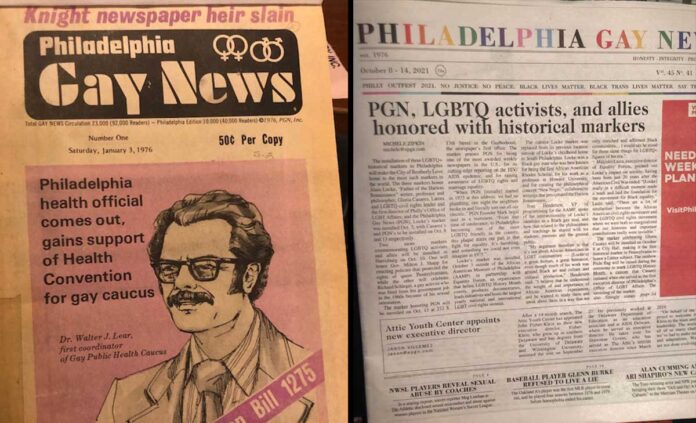Compared to 45 years ago, when PGN first started, those of us who work here have a much more comfortable life. Physically, we have an office with plumbing, we have vending boxes that don’t get bombed or glued shut every week, and we have two inventions — computers and internet — that make publishing excruciatingly easy by comparison. We also don’t have constant threats of physical violence and intimidation, nor do we have people in government lobbying against the paper and the community’s existence.
But, those stark changes aside, the PGN of 2021 actually has many things in common with the PGN of 1976. It has a staff that works hard to bring new stories about the LGBTQ community to life. It has a staff that is dedicated to reporting on cases involving the community that have gone unsolved and undertold. And it has a staff who understand that community journalism is not the most thankful job, but it is richly rewarding as you grow alongside and learn about the community you serve.
If you hadn’t guessed, the main similarities between PGN 1976 and PGN 2021 are the people who work here. Whether it’s the actual people (Mark, Don, Tim, Victoria) who have been here since the early days or the people who have joined in the interim, the people who work at PGN understand why local LGBTQ journalism matters, and they’ve dedicated their time and energy to ensuring that LGBTQ Philadelphians have a quality publication that reports on all areas in the community.
Another important similarity between the two time periods is the community itself. While the LGBTQ community in Philadelphia has more people in it and more organizations serving it today, the passion within the community is the same as it was in 1976. The drive for equality is as strong as it was in 1976. And the truth that LGBTQ voices are as important as any other group is the same as it was in 1976.
It’s true, though, that times have changed both inside the community and with the forces affecting it. There is an important push for all members of the community — not just one letter or two in the acronym — to be represented. And now that the community is in a much more public light both politically and culturally, we are again the focus of an entire political movement that is trying to make our community the issue that emboldens, empowers, and elects their sweeping discrimination. The fight has not stopped, even with marriage equality or the end of Don’t ask don’t tell. And it probably will never stop.
That idea, that there will never be an end to the fight, is exhausting. But it’s also what drives PGN and what keeps it going. There will never not be a need to highlight the local LGBTQ community, whether it’s a profile of an artist who inspires or an article on an activist looking to move the equality pendulum. That need was there in 1976, and it remains here, strongly in place, in 2021.
